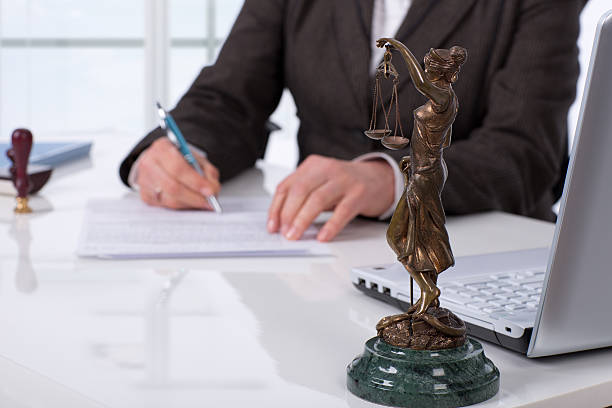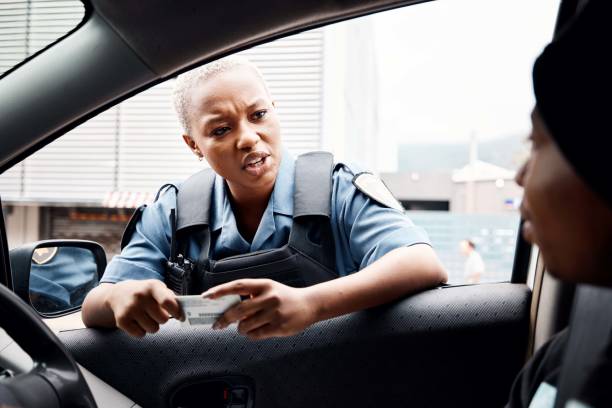Criminal Defense Attorney: What to Expect
Presented by Tim Fleming Law Firm
Visit: www.timfleminglaw.com
Facing criminal charges can feel overwhelming. Whether you’re dealing with a misdemeanor or a more serious offense, having a criminal defense attorney on your side is one of the most important decisions you can make. At Tim Fleming Law Firm, we believe in helping clients understand what they’re facing and how we can help navigate the legal process with clarity and confidence.
Here’s a breakdown of what you can expect from a criminal defense attorney and how the process typically works.
- Initial Consultation and Case Review
The first step is meeting with your attorney to discuss the charges, your version of events, and any documents or evidence you’ve received. This is your opportunity to be open and honest about the situation so your attorney can begin evaluating possible strategies. At Tim Fleming Law Firm, we approach every case with a tailored plan based on its unique details.
- Investigation and Evidence Review
A criminal defense attorney will review all available evidence, including police reports, witness statements, body cam footage, and any physical or forensic evidence. Your attorney may also seek out additional information that helps strengthen your position—such as surveillance footage, documents, or additional witnesses who support your account of what happened.
- Legal Strategy Development
After reviewing the facts and law, your attorney will develop a legal strategy. This can involve filing motions, negotiating with the prosecutor, or preparing for trial. Every case is different, and a thoughtful, strategic approach is essential.
- Court Representation
Your defense attorney will represent you at all court hearings, including arraignments, bond hearings, pretrial conferences, and—if needed—a trial. During these appearances, your attorney speaks on your behalf, presents arguments, and ensures your rights are protected throughout the process.
- Plea Negotiations
In many cases, the defense attorney may engage in discussions with the prosecutor to explore the possibility of a plea agreement. This can include reduced charges, alternative sentencing, or other options depending on the circumstances. While not every case involves negotiations, your attorney will explain all options thoroughly so you can make informed decisions.
- Trial Preparation and Advocacy
If your case goes to trial, your attorney will prepare witnesses, develop a defense presentation, cross-examine the state’s witnesses, and present arguments to the judge or jury. This phase involves meticulous preparation and attention to legal procedures and evidentiary rules.
- Sentencing and Post-Trial Support
If there is a conviction or plea agreement, your defense attorney may appear at sentencing to advocate for fair terms and present mitigating factors. In some situations, post-trial motions or appeals may be discussed, depending on how the case concludes.
What You Can Expect from Tim Fleming at Tim Fleming Law Firm
Tim Fleming believes in clear communication, thorough preparation, and working closely with each client. He understands the weight of facing criminal charges and is committed to guiding you through each step with care, precision, and straightforward advice. Whether your case involves DUI, theft, assault, or another criminal offense, you’ll have someone working alongside you who takes your case seriously and communicates every step of the way.
Frequently Asked Questions (FAQs)
Q: Will I have to go to trial?
Not necessarily. Many criminal cases are resolved before trial, either through dismissals, negotiations, or alternative resolutions. Your attorney will explain your options as your case progresses.
Q: What if I’m innocent?
Your defense attorney will investigate the case thoroughly and advocate for your side of the story. Being proactive, prepared, and informed is critical when challenging charges.
Q: Can my charges be reduced or dismissed?
This depends on the facts, evidence, and legal arguments in your case. Some cases may involve legal motions that challenge the validity of the arrest or the way evidence was obtained.
Q: How do I communicate with my attorney during the case?
At Tim Fleming Law Firm, clients are encouraged to stay in close communication. We offer timely updates and clear explanations of what’s happening at each stage of the case.
Q: What should I bring to my first meeting?
Bring any paperwork you’ve received from law enforcement or the court, including citations, bond information, and your recollection of what happened.
For more information or to schedule a consultation, visit www.timfleminglawfirm.com.
Tim Fleming Law Firm — Here when it matters.






